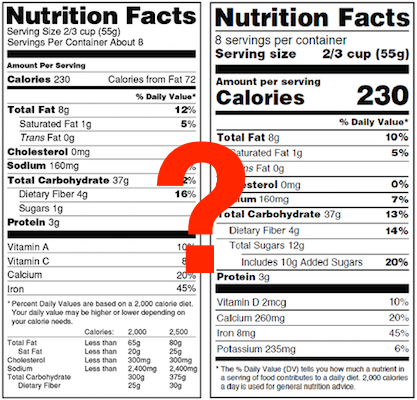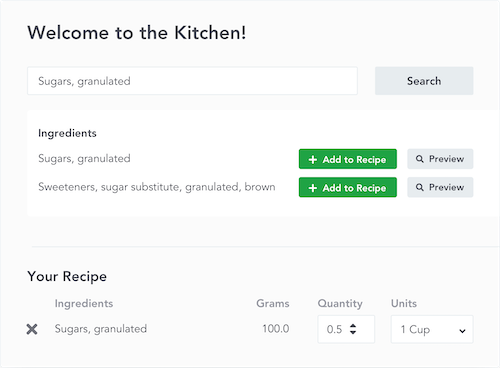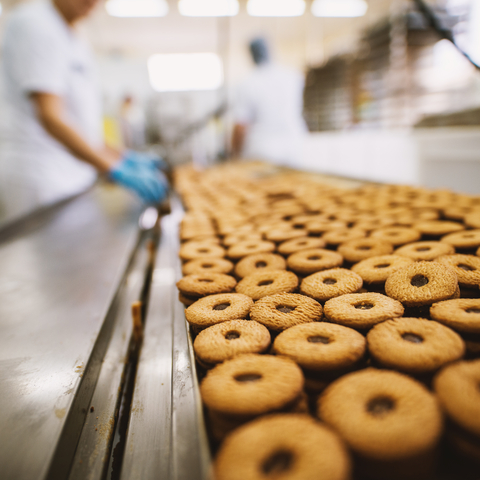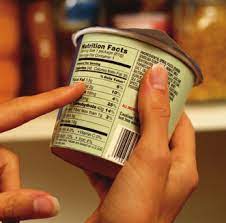Starting a Baby Food Business: Lessons from Owner of YumTum
This is the fourth post in a series of interviews with successful food businesses. We’ll go over how they started, successes and failures, and general advice for other food entrepreneurs.
This week’s guest is Jacy Eckerman, owner of YumTum, which is based in Madison, Wisconsin. They make freshly frozen, nutrient-rich organic baby food. Kids love the taste and it’s also incredibly healthy and nutritious. For all you new and soon-to-be moms out there, keep your eye out for YumTum.

Those Are Some Happy, Healthy Babies
You have a partner who is also a mom. Tell us how you met.
We actually met in a birth class. We were sitting next to each other each week in class, but never imagined we’d become best friends let alone start a business together. We actually reconnected in the health aisle of our local grocery store.
The regular aisles don’t quite cut it for the little ones, huh?
We were both very health conscious when it came to feeding our kids. There is so much contradicting information out there about infant nutrition, so Heidi and I relied on each other to sort it out. We both felt that the food in grocery stores was inadequate for our babies. I want my baby to eat the best. Babies start with a clean slate as far as health and nutrition, so we both felt it was really important to start them off right with whole, nutritious foods.
You had a funny story related to this about your daughter eating processed foods recently.
This was the first year that my three year old went trick or treating. She doesn’t eat much sweets or processed foods because we’ve worked hard to have her eating well from the start. So when she tried the candy, her reaction was “these taste funny, these taste silly Mom”. The artificial flavors were foreign to her and I think that’s a good thing.
Making a difference already, starting at home. So how did you go from having a baby to starting a business with Heidi?
We started with our own babies, splitting the research and sharing recipes. It was early 2011 when we developed YumTum. We created a survey and emailed it to friends who are moms to find out what products people wanted. How much do they spend? Would they buy it if they already make their own food? We had recipes from what our babies ate at 6-8 months, but then we did more research on what foods were nutrient rich. We did a lot of taste tests with moms and babies, testing different recipes and then flavors within a recipe (should we use cumin or cinnamon?). That’s how we picked the best recipes.

The Dynamic Duo Behind YumTum
I have to say that is fairly unique for small businesses. A lot of times we rely on instinct and hunches, but you had solid footing to build your business around. So what differentiates YumTum from jarred baby food?
I can go on about this for days, but a recent study really drove the point home. It claimed that if you feed your baby just jarred baby food it wouldn’t even meet daily nutritional requirements. That was scary news, but confirmed the validity of what we’re doing.
If you look at jarred food, the color is bad, it’s runny, and it’s just processed, not very good food. On top of that, they rely on fruit more than anything, so it has lots of sugar, not enough protein and calories. We steam our ingredients (mostly vegetables) very gently so that nutrients aren’t lost due to heating. Canning and jarring require you to heat your food, and that’s where you lose a lot of nutrients. We wanted it fresher, so we freeze our food. Plus, we don’t add water and did thorough research on ingredients that are truly nutritious for babies. All our ingredients are organic and vegan and gluten free too.
I’m putting this in my personal notes for when I’m a dad. Do you emphasize the quality in any way on the packaging?
We knew from our research and cooking process that it was the best. But when we got our nutrition analysis done, that’s when we were able to prove it and show the world. Due to our small size, we weren’t required to have nutrition labels, but moms like us always look at the nutrition labels, so having those on our packaging and on the website was huge for us. I’m not sure how we stumbled into ReciPal, but it was really amazing. And you guys helped us out with a few of our ingredients that the lab wasn’t able to quantify, so that was great.
Very cool. What’s the production process look like? I imagine it’s more challenging when you’re producing for babies.
Finding a commercial kitchen was one of the hardest things we had to do. Maybe it’s easier now, but 2-3 years ago it was really tough. We made our first recipes at home for the taste tests, but needed a wholesale processing license when we started working in our kitchen. Wisconsin has never had a baby food company, so we had to find the right hoops before we could even jump through them. We had to get our two most at-risk flavors to a lab for testing. Then we had to make every product several times in the commercial kitchen to test it before we even got a license.
We also have to have a very tight record keeping system in production. We take the temperature of all ingredients at three different times during cooking. We record the date we get each ingredient, the lot number, and do the same for our finished baby food so anyone can go to a store, look at the packaging and we can trace that back to our ingredients, farms, dates, etc.
Impressive. So who were the first customers once you found a commercial kitchen and jumped through all the hoops?
We started out as a delivery business. So people would order it directly from us and we’d bring it to their houses. That didn’t work at all. Then, we were at a festival and someone was interested in taking our food at a health store. We thought we’d need a clientele before we could get into stores, but it turns out we were wrong. So then we focused on stores.
Did it take off at that point?
Not really. Our packaging was pretty poor at that time and it was definitely affecting sales. We also didn’t apply for organic certification until a bit later in our business’ life. So, we changed our packaging, became officially organic. We also worked with University of Wisconsin Stout Discovery Center to figure out our shelf life. We figured out that vacuum sealing the food before freezing improves quality and shelf life a lot.
Sounds like that was a bit of a turning point.
At that point we went to a lot of local stores – Madison is all about local food now, so it was well received. A bit too well received, because we eventually had to stop going to grocery stores when they all started saying yes and we knew we wouldn’t be able to handle volume.
Wow, that’s great. Did anything else help drive sales in the stores?
Changing the packaging definitely helped – it also lowered our costs, which allowed us to lower prices a bit. The tricky thing with YumTum is that our food is frozen, and most moms are not looking in the freezer section for baby food. So we did a lot of demos in these stores. We also got freezer decals with our logo so people could identify our brand without looking in each freezer section.
Sounds like packaging and display were really important projects for you. Anything else along those lines?
We also bought our own label printer because it was getting really expensive. We were changing our labels a lot at the time, and it became much more reasonable to print them ourselves than to have a printing company do it each time. That opened another can of worms since we were doing all the packaging ourselves, as you can imagine.
So, what are next steps for YumTum?
What would be really great for us is celebrity endorsement. Moms are often at home and watch the major shows like Oprah, Ellen, Dr. Oz. If we could get their endorsement, or even if they endorsed frozen foods, I think that would be huge. We have a whole database of potentially great celebrity contacts – that’s up to me as the media focused part of our team. And having another baby slowed that down a bit.
Someone also contacted us recently about franchising the business, so that’s another interesting growth opportunity since we’re so focused on Madison and staying a true, local producer. We’ve started working with local farms to really stay true to that aspect of the business.
Any parting words for your fellow food entrepreneurs?
You have to love your idea and business, but not so much that you aren’t flexible enough to change it. That was evidenced by our switching from home delivery to selling in stores early on. So you have to know when to be flexible and when to stand your ground. Everyone will tell you something different, so that is surprisingly challenging.






